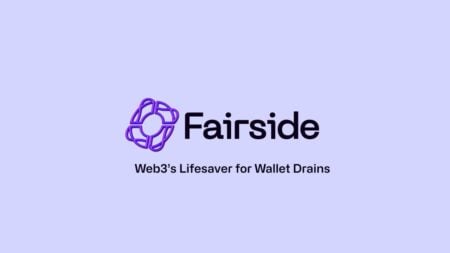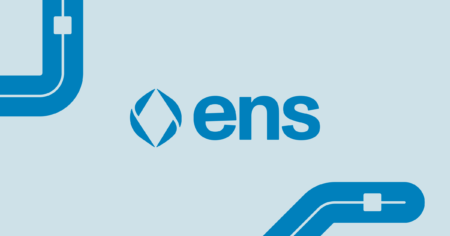Last Sunday marked my one-year anniversary in the web3 space. Last year at this time, instead of listening to music on my run, I decided to listen to an NFT podcast. I stood outside my house and flipped through a few podcasts. I was about to give up until I found “The Mint Condition.”
The podcast felt like I was listening to my boys just chilling out, lounging, and talking about NFTs. It only made sense that the dGEN Network, which hosts TMC, would end up being my Web3 home.
Fast forward to last Friday, I had the pleasure of speaking with Zeneca, the expert on Web3 community building, along with my awesome friends/co-hosts of “The NFT Night Shift.” We talked about various topics including community building (which is paramount in this space).
I truly believe that finding a community can make or break your journey through Web3. Here are some tips I’ve learned from my own experience and from others in the field on how to connect with people who share your interests.
Explore Social Platforms

As new communities keep popping up across Web3, there are a few platforms that are known for bringing in a lot of crypto fans.
Twitter has changed a lot since its early days when it was just a place for short streams of consciousness. It is now a popular place for people to share news, start conversations, and connect with others. This is especially true for the crypto-curious and Web3-native crowds, who have used Twitter threads and Twitter Spaces to talk with people all over the world. Twitter Spaces is great for people who want to listen in on a conversation before joining in.
The audio tool, which looks like a Clubhouse, is a mix between an expert podcast and a phone call with your peers. If you’d like to check out a Twitter Space, I’d highly recommend tuning into “Coffee with Captain” starting at 8am ET, Mon-Fri.
You can also follow influential artists and thinkers in the space. Those whose identities have been checked by Twitter are sometimes marked with a blue check mark. Make sure you’re only following official accounts, because scammers are getting better at pretending to be important people on the internet (especially after Twitter introduced their updated policy on official accounts).
Discord is another popular way to talk to one another. The online hangout platform for video games, Discord, has been taken up by Web3 platforms and projects, and many of them have their own Discord server. Discord is where you’ll find your community and spend the majority of your time. As always, be mindful of which server you decide to join. I’d recommend joining as many as possible and see which server you vibe with the best. For me, it’s Dgen Network and it’s not a shameless shill as I truly believe that we hold the strongest community in Web3. Don’t believe me? Check out our OpenSea page.
Along with Twitter and Discord, there are a few other well-known “Web2” platforms that Web3 supporters seem to still find useful. Reddit is a tried-and-true community forum that has been around since 2005. Crypto enthusiasts still go there to get information from the crowd and find subcommunities that fit their interests. Reddit started a market for “digital collectibles” (NFTs) in July, and the platform recently made headlines because it has more than 2.5 million active crypto wallets.
In a similar way, Meta, the company that owns Facebook and Instagram, has embraced digital collectibles on its platform. Instagram is now testing minting and selling NFTs for a small group of U.S. creators (DrifterShoots had a very successful drop on Instagram a few days ago).
Lastly, the metaverse as a concept is still young, but there are already a number of blockchain-based platforms, such as Mona, Decentraland, and The Sandbox, which host regular community events and offer virtual hangout spaces where people can use their own avatars. In fact, art galleries, virtual worlds, and music festivals that are part of the metaverse keep popping up on these platforms.
Look for IRL Meetups and Local Events

If you live in a big city anywhere in the world, sites like Meetup probably have a list of IRL (in real life) events happening near you. It might seem a little old-fashioned; after all, why talk to your neighbors when you can learn in the metaverse? But many well-known individuals such as Vitalik Buterin, Kevin Rose, and Alexis Ohanian have been to meetups in their local cities.
There are, of course, many ways for Web3-curious people to network only online (webinars and Zoom hangouts are still popular options). But when you can, it’s best to meet in person with people who live near you. You might meet developers, professors from local universities, and policymakers from your area who are probably working on Web3’s foundation.
Connecting in real life is also a way to avoid the inevitable tech-neck that comes with the Web3 lifestyle, as well to bridge the gap between online and offline interactions.
You can also start a meetup if there isn’t one in your area. For example, one of my friends started a crypto meetup a couple of years ago. What started out as a group of six people, turned into a group of 300 members and growing!
Attend a Crypto Conference

You could connect with thought leaders, NFT artists, startups, affinity groups, developers, marketing experts, and art collectors from around the world by going to one of the many crypto conferences that have sprung up in recent years.
A spreadsheet put together by Crypto Nomads Club, a group of digital nomads and frequent travelers who meet at crypto events around the world, shows that there were at least 137 conferences focused on Web3 in 2022. Prices for these events can range from free to $5,000 for VIP access passes. Often, people can pay for their tickets with either fiat currency or cryptocurrency. Disclaimer: make sure you DYOR before spending that kind of money on these events. It’s been a common theme that most do not attend the speaking events at these conferences.
Many of these conferences also have smaller events planned around them, giving Web3 professionals more chances to meet and talk. For example, the tabs for the last two conferences, DevCon and ETH Lisbon, had between 100 and 120 satellite events each. Many people even skip buying tickets to the main conference because satellite events are often better places to make connections.
Use your Best Judgment and DYOR

Even though these tips may help people connect with each other in new ways, talking online may also bring scammers or spam into your inbox. If you use the hashtags #NFT or #NFTCommunity on Twitter or Instagram, you may get a lot of bots asking for the private keys to your cryptocurrency wallet in your direct messages (which you should keep safe and never give to anyone).
Investing in crypto is not for people who are easily scared but making friends and building relationships should be fun and not stressful. Although getting involved in the crypto community can sometimes feel like swimming with sharks, I’m proud to be part of the group of users who are working to make sure that the future of our Web3 is based on good ideas. It’s important to remember that many people believe Web3 is a long game and making relationships along the way is ultimately more fruitful than getting lost in the hype.
DYOR is a common phrase in the crypto community. It stands for “do your own research,” which is exactly what it means. I go to Web3 events with a few healthy limits and keep the same level of skepticism and interest in most virtual-first interactions. Remember that the Web3 community is made up of a small but growing group of technologists, developers, founders, and other curious people who value financial sovereignty, institutional transparency, and data privacy. And if this sounds like you, you’re welcome to join us.




